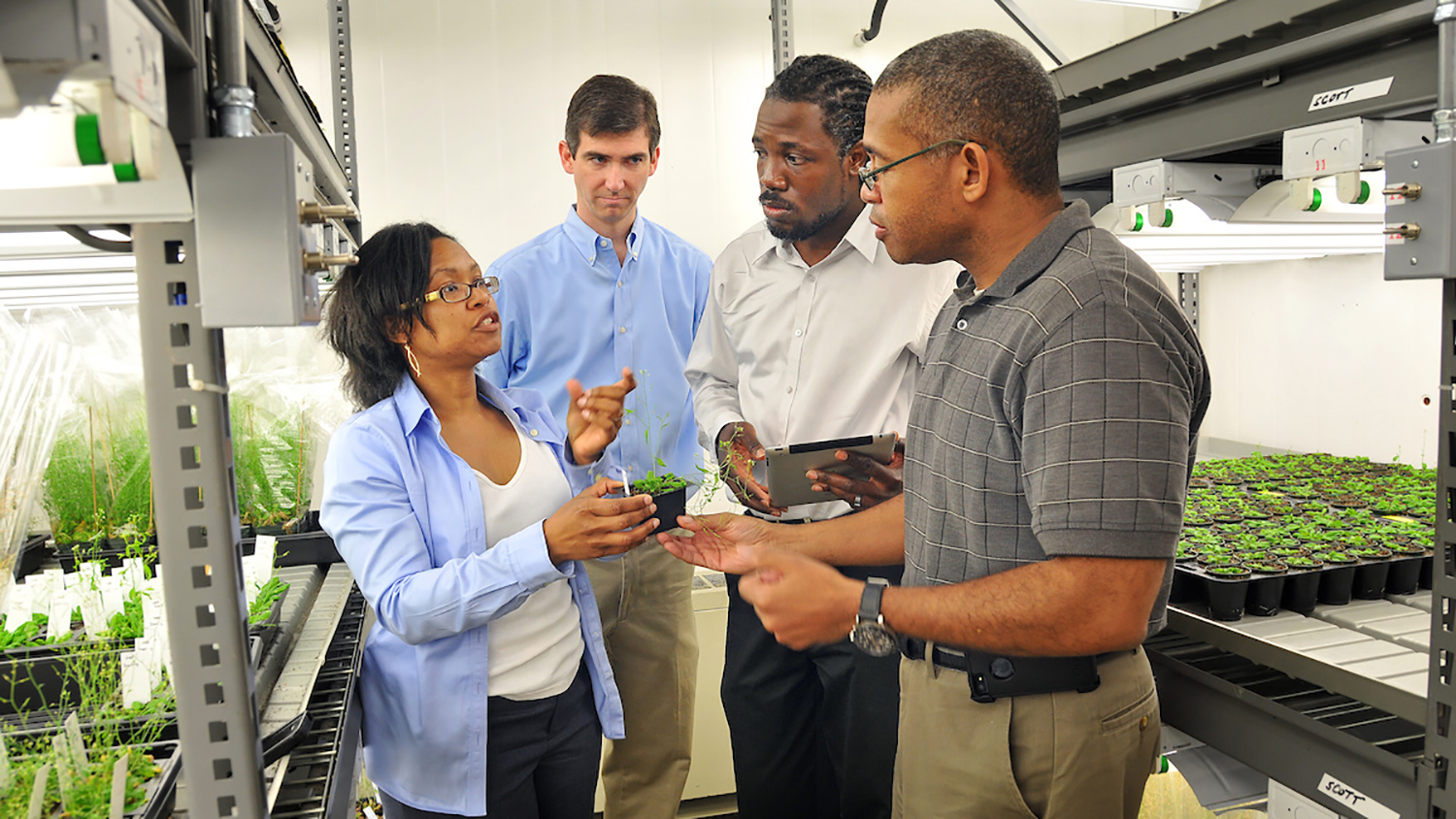Get to Know: Faculty Affairs

Faculty Affairs at NC State supports faculty members in all positions throughout their careers. The Provost’s Office supporting unit works with faculty to promote a culture of comprehensive academic and professional excellence on campus, and helps create an environment where faculty feel welcome and at home.
We sat down with Dr. Katharine Stewart, vice provost for faculty affairs, to talk about how the unit serves all faculty at NC State through policy transparency, professional development opportunities, consultation from the individual to college level, and more.

What is the role of Faculty Affairs at NC State?
The role of Faculty Affairs is primarily twofold. One aspect is providing support for the implementation and review of all policies related to faculty appointment, reappointment, promotion and tenure, and other policies such as scholarly reassignment, post-tenure review, phased retirement and more. The second aspect is supporting the Office of Faculty Development, which provides programming, workshops, institutes and other programs that serve faculty at all stages of their careers, as well as working with other units across campus to promote their faculty development activities or identify new faculty development opportunities.
How does Faculty Affairs work with and support faculty at the university?
We’re always available to provide advice and support for individual faculty, department heads, deans, and administrative staff who support faculty. Most of our consultations involve providing guidance on issues related to reappointment, promotion, or tenure. We conduct quite a few workshops for colleges and departments related to that area, but we are also happy to provide consultation or department- or college-wide workshops on other policies and procedures affecting faculty. We also coordinate many faculty award processes through our office, including the Board of Governors Award for Excellence in Teaching, the University Teaching Awards, and the review process for selection of University Faculty Scholars.
How do Faculty Affairs’ services and initiatives work toward NC State’s overall organizational excellence?
We work to promote fairness, transparency and accessibility for all of our policies. We want faculty, department heads and deans to understand the rules and regulations that guide faculty employment, promotion in all of our faculty tracks — tenure track, teaching track, research track, clinical track, extension track and practice track. We want faculty to know how rules apply to them and how various processes work.
When you have that kind of fairness and transparency, you have an organization that works much better. One of the hallmarks of a great university is having a shared governance structure. Having faculty involved in the process of deciding how these regulations and rules get revised and updated, in addition to receiving guidance from faculty about how to implement and communicate about these policies and programs, is an important part of being an excellent university.
We also want to provide faculty development programming that will support individual faculty excellence, and through that, support the university’s excellence. We are continuously examining our programming in the Office of Faculty Development and talking with faculty around campus about how to refine our program offerings and develop new approaches to support them.
In what ways does Faculty Affairs work to strengthen NC State’s academic reputation?
Ultimately, the way we support excellence is by supporting our amazing faculty. The academic reputation of the university is built fundamentally on the work, the achievements and the excellence of our faculty. The fact is that our faculty are dedicated, ambitious, creative people, and so they almost always have more to do than time to do it, so we want to help faculty be as effective and successful as possible and help them navigate the many responsibilities that are associated with their faculty roles.
What is something that people may not know about Faculty Affairs?
People may not know that we are available for consultation and support for whole departments and colleges as well as for individual faculty members. For individual faculty, we will first try to make sure that communication is happening with the department and with the dean as appropriate, but we also are available for consultation about the university-level processes and procedures that affect them. We also are very interested in hearing from faculty about what kinds of programming would be useful to them. We are in the process of re-envisioning what the Office of Faculty Development can do in terms of its work and how it serves our entire faculty and the entire range of faculty activities. We’re at a critical point in this planning process and would be really excited to hear what people think would be helpful to them.
We’re hoping to institute some new initiatives to support faculty and departments, including delivering programs in new modalities and focusing on more aspects of faculty life. For example, we are exploring some possibilities for new leadership development initiatives across the university. This won’t be exclusively for those who are already in leadership positions, but for all faculty to lead from where they are, enhance their leadership skills and reach goals for their own careers. Coming up, we’ll also look into how we can make sure that our promotion policies are even clearer and more transparent for faculty on all of our different tracks.
Learn more about resources available for faculty on the provost’s website and through the Office of Faculty Development .
- Categories:


